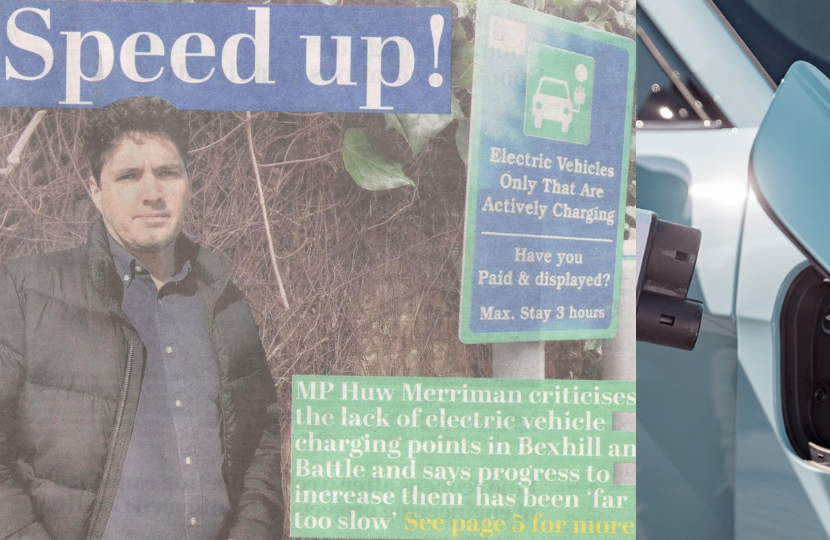
With the sale of new petrol and diesel cars and vans due to end by 2030, it is vital that we have sufficient charging infrastructure to cope with the increasing number of electric vehicles on our roads. Clearly this is something that is happening at far too slow a pace locally, and I share the concerns you detail in your email.
In 2017, the Government launched the On-Street Residential Charging Scheme (ORCS) to help local authorities install on-street charge points. The Transport Select Committee recently held an inquiry into zero emission vehicles and discovered that since the scheme’s inception, 32% of the funds allocated have been unused.
I recently wrote to East Sussex County Council to ask why they have not bid for funding and to convey my expectation that they do so before it is spent in other parts of the country.
Read East Sussex County Council's response here.
Clearly more needs to be done across the board, though. For example, in the forthcoming Planning Bill, we should make it a requirement that new estates are built with charging points included. The Transport Committee’s report also made a series of recommendations to Government on how we can boost charging infrastructure. These included:
- support sub-national transport bodies and local authorities to deliver sufficient and well-maintained charging infrastructure solutions tailored to local needs.
- ring-fence a portion of the £90 million local charging scheme so local authorities can employ dedicated ‘charge point champions’ to deliver local charging infrastructure strategies.
- identify and address under-provision at locations outside the strategic road network, where grid connection costs and grid upgrades are expensive and the business case for investment is weak.
- amend the wayleave regime for installing charging infrastructure to ensure that that regime does not act as a barrier to roll-out.
- protect the consumer from excessive costs when charging in public.
- address the discrepancy between the 5% VAT incurred for home charging and 20% VAT for on-street.
